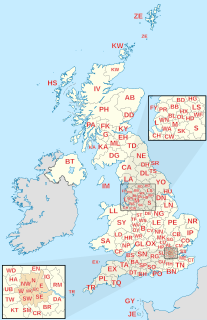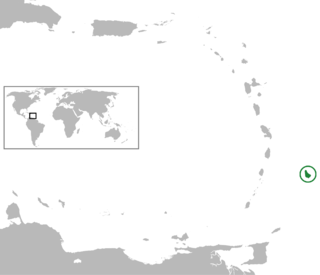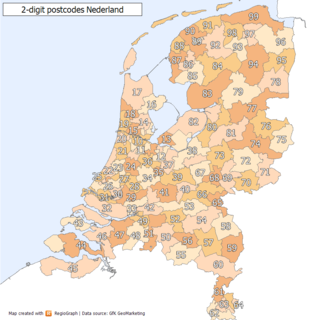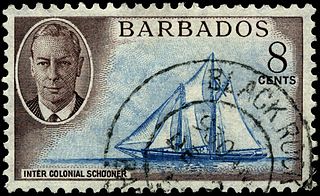This page is based on this
Wikipedia article Text is available under the
CC BY-SA 4.0 license; additional terms may apply.
Images, videos and audio are available under their respective licenses.
A ZIP Code is a postal code used by the United States Postal Service (USPS) in a system it introduced in 1963. The term ZIP is an acronym for Zone Improvement Plan; it was chosen to suggest that the mail travels more efficiently and quickly when senders use the code in the postal address. The basic format consists of five digits. An extended ZIP+4 code was introduced in 1983 which includes the five digits of the ZIP Code, followed by a hyphen and four additional digits that reference a more specific location.
Communications in Barbados refers to the telephony, Internet, postal, radio, and television systems of Barbados. Barbados has long been an informational and communications centre in the Caribbean region. Electricity coverage throughout Barbados is good and reliable. Usage is high and provided by a service monopoly, Barbados Light & Power Company Ltd..

Postal codes used in the United Kingdom are known as postcodes. They are alphanumeric and were adopted nationally between 11 October 1959 and 1974, having been devised by the General Post Office. A full postcode is known as a "postcode unit" and designates an area with a number of addresses or a single major delivery point.
A Canadian postal code is a six-character string that forms part of a postal address in Canada. Like British, Irish and Dutch postcodes, Canada's postal codes are alphanumeric. They are in the format A1A 1A1, where A is a letter and 1 is a digit, with a space separating the third and fourth characters. As of September 2014, there were 855,815 postal codes using Forward Sortation Areas from A0A in Newfoundland to Y1A in the Yukon.

The Barbados Slave Code of 1661 was a law passed by the colonial English
legislature to provide a legal basis for slavery in the Caribbean island of Barbados. The code's preamble, which stated that the law's purpose was to "protect them [slaves] as we do men's other goods and Chattels", established that black slaves would be treated as chattel property in the island's court.
The Barbados national football team, nicknamed Bajan Tridents, is the national association football team of Barbados and is controlled by the Barbados Football Association. It has never qualified for a major international tournament. It came close to qualifying for the 2005 CONCACAF Gold Cup as it hosted the Caribbean Cup finals that acted as Gold Cup qualifiers, but finished fourth of the four teams. In 2001, it surprised many by making the semifinal round of the 2002 World Cup Qualifiers. In the first game of this round, they pulled off a shock 2–1 win over Costa Rica, but lost their five remaining games. In 2004, Barbados gained a shock 1–1 draw at home to Northern Ireland.
The area code 246 in the North American Numbering Plan (NANP) is a composite part of the telephone numbering plan for Barbados. It is regulated by the government's Telecommunications Unit, which holds responsibility for telecommunications. The number 246 spells BIM, a nickname for the island.
Ukraine uses five-digit numeric postal codes that are written immediately to the right of the city or settlement name.
ISO 3166-2:BB is the entry for Barbados in ISO 3166-2, part of the ISO 3166 standard published by the International Organization for Standardization (ISO), which defines codes for the names of the principal subdivisions of all countries coded in ISO 3166-1.

The following is an alphabetical list of topics related to the nation of Barbados.

The following outline is provided as an overview of and introduction to Barbados:

Russian Post has a system of postal codes based on the federal subject a place is located in. Each postal code consists of six digits with first three referring to the federal subject or the administrative division with special status. Some larger subjects have multiple three-digit prefixes. For instance, Moscow's postal codes fall in the range 101–129.

Postal codes in the Netherlands, known as postcodes, are alphanumeric, consisting of four digits followed by two uppercase letters. The letters 'F', 'I', 'O', 'Q', 'U' and 'Y' were originally not used for technical reasons, but almost all existing combinations are now used as these letters were allowed for new locations starting 2005. The letter combinations 'SS', 'SD' and 'SA' are not used because of their associations with the Nazi occupation of the Netherlands.

This is a survey of the postage stamps and postal history of Barbados.









